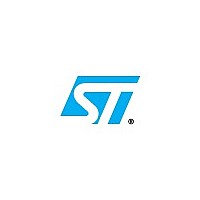ST10F273M-4TR3 STMicroelectronics, ST10F273M-4TR3 Datasheet - Page 58

ST10F273M-4TR3
Manufacturer Part Number
ST10F273M-4TR3
Description
MCU 16BIT 512K FLASH 144-LQFP
Manufacturer
STMicroelectronics
Series
ST10r
Datasheet
1.ST10F273M-4TR3.pdf
(182 pages)
Specifications of ST10F273M-4TR3
Core Processor
ST10
Core Size
16-Bit
Speed
40MHz
Connectivity
ASC, CAN, EBI/EMI, I²C, SSC, UART/USART
Peripherals
POR, PWM, WDT
Number Of I /o
111
Program Memory Size
512KB (512K x 8)
Program Memory Type
FLASH
Ram Size
36K x 8
Voltage - Supply (vcc/vdd)
4.5 V ~ 5.5 V
Data Converters
A/D 24x10b
Oscillator Type
Internal
Operating Temperature
-40°C ~ 125°C
Package / Case
144-MQFP, 144-PQFP
Processor Series
ST10F27x
Core
ST10
Lead Free Status / RoHS Status
Lead free / RoHS Compliant
Eeprom Size
-
Lead Free Status / Rohs Status
Details
Available stocks
Company
Part Number
Manufacturer
Quantity
Price
Company:
Part Number:
ST10F273M-4TR3
Manufacturer:
STMicroelectronics
Quantity:
10 000
- Current page: 58 of 182
- Download datasheet (4Mb)
Interrupt system
9.1
58/182
Table 30.
Hardware traps are exceptions or error conditions that arise during run-time. They cause
immediate non-maskable system reaction similar to a standard interrupt service (branching
to a dedicated vector table location).
The occurrence of a hardware trap is additionally signified by an individual bit in the trap flag
register (TFR). A hardware trap will interrupt any other program execution except when
another higher prioritized trap service is in progress. Hardware trap services cannot not be
interrupted by a standard interrupt or by PEC interrupts.
X-Peripheral interrupt
The limited number of X-Bus interrupt lines of the present ST10 architecture, imposes some
constraints on the implementation of the new functionality. In particular, the additional X-
Peripherals SSC1, ASC1, I
and PEC transfer capabilities. For this reason, a multiplexed structure for the interrupt
management is proposed. In the next
diagram, which shows the basic structure replicated for each of the four X-interrupt available
vectors (XP0INT, XP1INT, XP2INT and XP3INT).
It is based on a set of 16-bit registers XIRxSEL (x = 0,1,2,3), divided in two portions each:
●
●
When different sources submit an interrupt request, the enable bits (Byte High of XIRxSEL
register) define a mask which controls which sources will be associated with the unique
GPT2 Timer 6
GPT2 CAPREL Register
A/D Conversion Complete
A/D Overrun Error
ASC0 Transmit
ASC0 Transmit Buffer
ASC0 Receive
ASC0 Error
SSC Transmit
SSC Receive
SSC Error
PWM Channel 0...3
See
See
See
See
Source of interrupt or
PEC service request
Byte High
Byte Low
Section 9.1
Section 9.1
Section 9.1
Section 9.1
Interrupt sources (continued)
2
C, PWM1 and RTC need some resources to implement interrupt
Request
S0TBIR
PWMIR
ADCIR
ADEIR
SCRIR
SCEIR
S0RIR
SCTIR
S0TIR
S0EIR
XP0IR
XP1IR
XP2IR
XP3IR
CRIR
T6IR
flag
XIRxSEL[15:8]
XIRxSEL[7:0]
Figure
S0TBIE
PWMIE
Enable
SCRIE
ADCIE
ADEIE
SCEIE
S0RIE
S0EIE
SCTIE
XP0IE
XP1IE
XP2IE
XP3IE
S0TIE
CRIE
T6IE
flag
10, the principle is explained through a simple
Interrupt Enable bits
Interrupt Flag bits
Interrupt
S0TBINT
PWMINT
ADCINT
ADEINT
SCRINT
SCEINT
S0RINT
SCTINT
S0TINT
S0EINT
XP0INT
XP1INT
XP2INT
XP3INT
vector
CRINT
T6INT
00’00BCh
00’009Ch
00’011Ch
00’00ACh
00’00FCh
00’010Ch
00’00A0h
00’00A4h
00’00A8h
00’00B0h
00’00B4h
00’00B8h
00’0098h
00’0100h
00’0104h
00’0108h
location
Vector
ST10F273M
number
Trap
2Ch
2Ah
2Bh
2Dh
2Eh
2Fh
3Fh
26h
27h
28h
29h
47h
40h
41h
42h
43h
Related parts for ST10F273M-4TR3
Image
Part Number
Description
Manufacturer
Datasheet
Request
R

Part Number:
Description:
MCU 16BIT 512K FLASH 144-LQFP
Manufacturer:
STMicroelectronics
Datasheet:

Part Number:
Description:
MCU 16BIT 512K FLASH 144-PQFP
Manufacturer:
STMicroelectronics
Datasheet:

Part Number:
Description:
MCU 16BIT 512K FLASH 144-PQFP
Manufacturer:
STMicroelectronics
Datasheet:

Part Number:
Description:
16-bit Mcu With 512 Kbyte Flash Memory And 36 Kbyte Ram
Manufacturer:
STMicroelectronics
Datasheet:

Part Number:
Description:
16-bit MCU with MAC unit, up to 832 Kbytes Flash memory and up to 68 Kbytes RAM
Manufacturer:
STMICROELECTRONICS [STMicroelectronics]
Datasheet:

Part Number:
Description:
MCU 16BIT 512K FLASH 144-LQFP
Manufacturer:
STMicroelectronics

Part Number:
Description:
MCU 16BIT 512K FLASH 144-LQFP
Manufacturer:
STMicroelectronics

Part Number:
Description:
MCU 16BIT 512K FLASH 144-PQFP
Manufacturer:
STMicroelectronics

Part Number:
Description:
MCU 16BIT 512K FLASH 144-PQFP
Manufacturer:
STMicroelectronics

Part Number:
Description:
STMicroelectronics [RIPPLE-CARRY BINARY COUNTER/DIVIDERS]
Manufacturer:
STMicroelectronics
Datasheet:

Part Number:
Description:
STMicroelectronics [LIQUID-CRYSTAL DISPLAY DRIVERS]
Manufacturer:
STMicroelectronics
Datasheet:

Part Number:
Description:
BOARD EVAL FOR MEMS SENSORS
Manufacturer:
STMicroelectronics
Datasheet:











